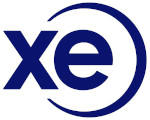The use of debit cards is widespread in New Zealand, much more so than in many European countries, and most garages, hotels, restaurants and even small shops accept them. An EFTPOS card can also be used to withdraw cash from ATMs throughout the country and overseas, for which you need a PIN number (which is usually sent automatically and separately from the card itself).
Guard your EFTPOS card and PIN number carefully, and if the card is lost or stolen inform your bank immediately so that it can be cancelled. It’s common practice in New Zealand for people to give their EFTPOS card and PIN to other people (e.g. partners, children or friends) to enable them to withdraw money on their behalf. This practice is discouraged by banks and if a card is misused they will hold you responsible for any debits charged to the card, whether you authorised them or not. If your card is lost or stolen, you won’t be responsible for any more than a token amount (and even then it isn’t usually charged), provided you’ve used your card properly and informed your bank as soon as you discovered it was missing.
You aren’t usually charged a fee when using an EFTPOS card in a shop or other outlet, although it’s legal for shops to charge a fee to cover their costs. Those that do must display a notice advising you of the fee, which is usually 50¢ or $1. When using an EFTPOS card to withdraw cash from a cash dispenser, you aren’t usually charged a fee if the cash dispenser belongs to your own bank. Many banks have mutual arrangements with other banks whereby their EFTPOS cards can be used in other banks’ ATMs, although where this is possible you may be charged a fee of up to $3.
The Mondex system, a kind of debit card that is ‘topped up’ with a sum of money, which is used to purchase goods and services, has recently been introduced in New Zealand, although it isn’t yet in widespread use.
Credit & Charge Cards
New Zealanders are enthusiastic users of credit and charge cards, although many prefer debit cards, where payments are immediately debited from their account. Credit and charge cards are issued by most banks (although some will only give you a credit card if you have a certain type of account with them, e.g. a mortgage loan), are accepted almost anywhere, and can also be used to withdraw cash from ATMs or over the counter at banks (note that this service costs from $1.50 to $4 and interest is charged from the day of the withdrawal). To use ATMs you require a PIN number.
Most international credit and charge cards are widely accepted in New Zealand, including American Express, Diners Club, Mastercard and Visa, plus the local Bankcard, which is also widely accepted in Australia. Most businesses in New Zealand accept major credit cards, so you’re unlikely to be stuck if you possess only one card.
Annual fees are between around $20 and $100. Most credit cards offer loyalty schemes with various bonuses, such as frequent flyer points with Qantas or Air New Zealand or cash rewards (‘cashback’). These loyalty schemes are extremely popular, particularly those offering air miles, and in late 2001 BNZ was forced to change its GlobalPlus scheme from one point per $1 spent to one point per $2 spent, as it was becoming too expensive for the bank! Interest rates on credit cards in 2005 varied considerably from around 11 to 18.5 per cent.
Some large store groups in New Zealand issue their own charge cards, to which you can charge purchases made in their stores, branches and associated shops. However, you should note that they usually charge a significantly higher interest rate than most credit cards.
Credit card fraud is a huge problem in New Zealand. If you lose your credit or charge card, you must report it to the issuer immediately by telephone. The law protects you from liability for any losses when a card is lost or stolen unless a card has been misused with your consent (e.g. by a friend), in which case you’re liable.



